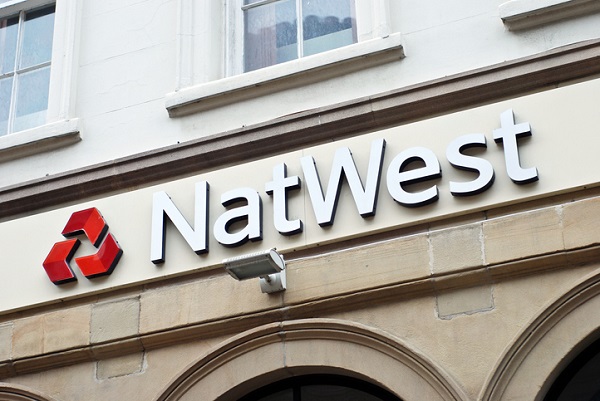Why NatWest shares are worth 25% more than they are now
They’re already up over 40% in 2024, but one City analyst thinks there’s still lots to like about the high street lender and its share price potential.
26th June 2024 15:37
by Graeme Evans from interactive investor

NatWest Group (LSE:NWG) shares have been backed to continue their strong run after a City bank said “higher for longer” interest rate conditions supported a new target price of 385p.
The UK lender is up by about 40% this year but Peel Hunt reckons the stock is still “attractively valued” as it flagged a further potential 25% upside from Wednesday afternoon’s 309p.
- Invest with ii: What is a Managed ISA? | Open a Managed ISA | Transfer an ISA
The 15p increase in target price reflects its 4% higher earnings forecasts for this year and next, which in turn have boosted hopes that 2024’s dividend can be kept at 17p a share.
The City firm said: “UK operating conditions have remained favourable for banks through the second quarter and we anticipate stronger than previously expected returns.”
It points out that interest rates have remained at 5.25% throughout the first half, higher than NatWest’s own projection for two cuts in the period.
Peel Hunt assumes that interest rates will decline to 4.5% in the second half of this year, with the slight net interest margin boost leading to higher income expectations.
It adds that the elevated interest rate backdrop has not triggered a material increase in impairments, meaning scope for NatWest to release certain provisions.
- Sign up to our free newsletter for share, fund and trust ideas, and the latest news and analysis
- Trading Strategies: a favourable risk/reward opportunity here
- Bank of England holds rates steady despite hitting inflation target
Given that its forecast return on tangible equity increases by 40 basis points to 13.4%, Peel Hunt said it would be “incongruous” for this strong performance to come with a reduced dividend.
It has raised its dividend forecast for this year from 15.9p to 17p, followed by increases to 18p and 20.7p to reflect higher earnings per share estimates. The dividend rose by 22% last year, when the bank returned £3.6 billion to shareholders.
NatWest is committed to a 40% payout ratio with capacity for share buybacks. This is underpinned by a pledge to maintain a CET1 capital ratio – a measure of financial strength - within a range of 13-14%.
The bank is due to report its half-year results on 26 July, having posted quarter-on-quarter growth in its operating profit to £1.3 billion in April. The net interest margin of 2.05% was six basis points higher than the fourth quarter.
Peel Hunt said the current earnings momentum reinforced its view of a “robustly profitable franchise with under-appreciated growth dynamics”.
It highlighted attractive valuation multiples showing a projected price/earnings ratio of six times by 2026, with dividends and buybacks yielding at double-digit percentage levels.
The calculations do not factor in the potential accretive impact of the acquisition of the Sainsbury’s Bank assets, which is expected to complete in the first half of 2025.
- Banks among stocks dragging FTSE 100 to six-week low
- Election manifestos 2024: the impact on your personal finances
- Annuities versus gilts for retirement income – which is best?
Peel Hunt’s support is echoed by other City analysts, with RBC earlier this month raising its target price to 360p and Deutsche Bank Research moving to 350p.
NatWest shares were 204p in November, when Chancellor Jeremy Hunt announced a Tell Sid-style privatisation of the government’s remaining NatWest shares.
Progress on his plan "to create a new generation of retail investors" was scuppered by the General Election, with the most recent disclosure showing the Treasury’s stake stands at 20.92% compared with 84% after the 2008 rescue of Royal Bank of Scotland.
Graeme Evans owns NatWest shares
These articles are provided for information purposes only. Occasionally, an opinion about whether to buy or sell a specific investment may be provided by third parties. The content is not intended to be a personal recommendation to buy or sell any financial instrument or product, or to adopt any investment strategy as it is not provided based on an assessment of your investing knowledge and experience, your financial situation or your investment objectives. The value of your investments, and the income derived from them, may go down as well as up. You may not get back all the money that you invest. The investments referred to in this article may not be suitable for all investors, and if in doubt, an investor should seek advice from a qualified investment adviser.
Full performance can be found on the company or index summary page on the interactive investor website. Simply click on the company's or index name highlighted in the article.